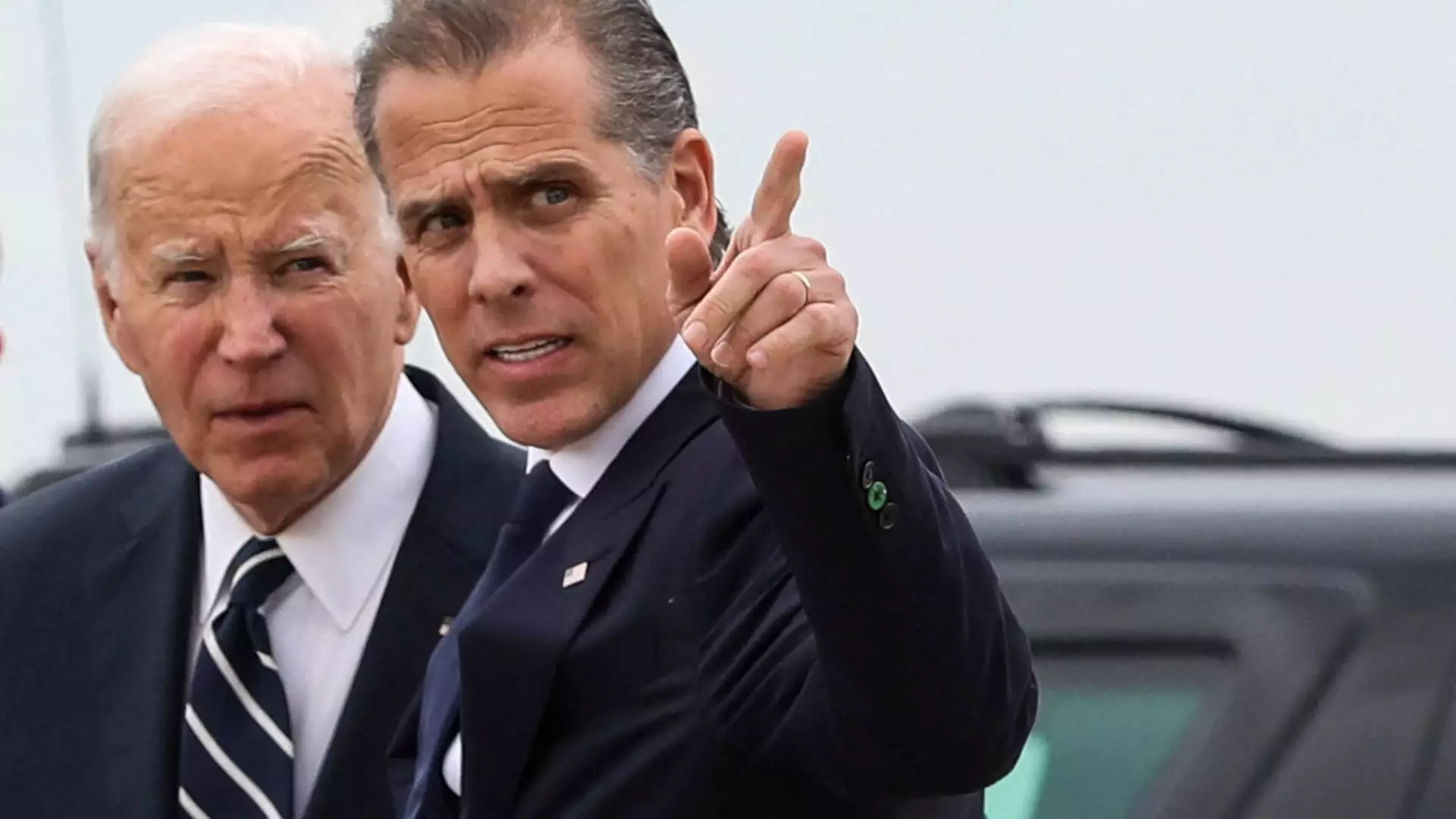In modern politics, the façade of strength often conceals the quiet deterioration of our leaders’ mental agility. When elite figures like Joe Biden, a man in his twilight years, are scrutinized for age-related decline, it exposes a deeper issue: a political culture that venerates youth and vigor but neglects the reality of aging. Hunter Biden’s recent revelations about his father’s use of Ambien and its potential impact on his debate performance shed uncomfortable light on a systemic problem—leadership that is increasingly disconnected from its own vulnerabilities. The American public deserves honesty, not sanitized narratives, especially when the credibility of the highest office is at stake. A leader’s ability to connect authentically with citizens hinges on transparency about their limitations, yet the political machinery often prefers denial and obfuscation. This dissonance undermines the very foundation of democratic accountability and fosters a sense of betrayal among voters seeking genuine representation.
The Illusion of Invincibility and the Cost of Denial
The eagerness of administrations to dismiss or dismiss reports of cognitive decline as “isolated incidents” or “medical issues” reveals an uncomfortable truth: there’s a collective reluctance to confront aging head-on. When Biden’s campaign staff attributed his poor debate performance to a “cold,” they attempted to minimize the matter’s significance, but such excuses only deepen public skepticism. The invocation of terms like “cold” or “fatigue” becomes thinly veiled attempts to preserve the illusion of vitality. These strategies may protect political careers temporarily but ultimately damage democratic legitimacy. The reliance on pharmaceuticals like Ambien, especially under stressful circumstances, raises ethical concerns about transparency and the responsibilities of those in power to be forthright about how health issues might influence decision-making at the highest level. Ignoring these realities risks casting a shadow of doubt over the competence of leaders entrusted with national security and global diplomacy.
The Political Exploitation of Age and Cognitive Ability
The ongoing politicization of cognitive health serves as a double-edged sword. Republican investigators probing Biden’s mental acuity are often accused of partisan meddling, yet the reality is that every citizen deserves assurance that their leaders are capable of the responsibilities entrusted to them. At the same time, Democratic leaders must grapple with the uncomfortable truth that aging leadership can inadvertently erode public confidence and encourage stereotypes about competency. Hunter Biden’s candid remarks don’t just serve as a GOP talking point; they spotlight a broader failure—an unwillingness within our political system to legitimately grapple with the implications of aging in office. As calls for term limits and age considerations persist, it becomes clear that society must evolve its standards—not just for political aspirants but for the institutions themselves. How can a democracy function effectively if its leaders are perceived as increasingly vulnerable or incapacitated? Real reform requires honesty, not avoidance.
Beyond Partisanship: The Moral Responsibility to Confront Aging
Aging is an unavoidable aspect of life—and leadership. Yet, society often treats it as a taboo, something to hide or deny. For democracies to thrive, particularly in an era of rapid information and heightened scrutiny, leaders must accept their limitations and prioritize transparency over preservation of power at all costs. This doesn’t mean sidelining senior leaders but instead fostering a culture where they are supported by appropriate measures—mental health assessments, term limits, or age-appropriate policies—that uphold both dignity and accountability. Hunter Biden’s comments, while controversial, serve as a stark reminder that the integrity of our political system depends on an honest acknowledgment of aging and its impacts. We should advocate for a system that recognizes human vulnerability as natural rather than stigmatizing, ensuring leaders are chosen and maintained based on their capability, not solely on their age or political capital. Only then can we restore faith in our institutions and build a healthier democracy—one that values truth over appearances, and accountability over denial.

Leave a Reply